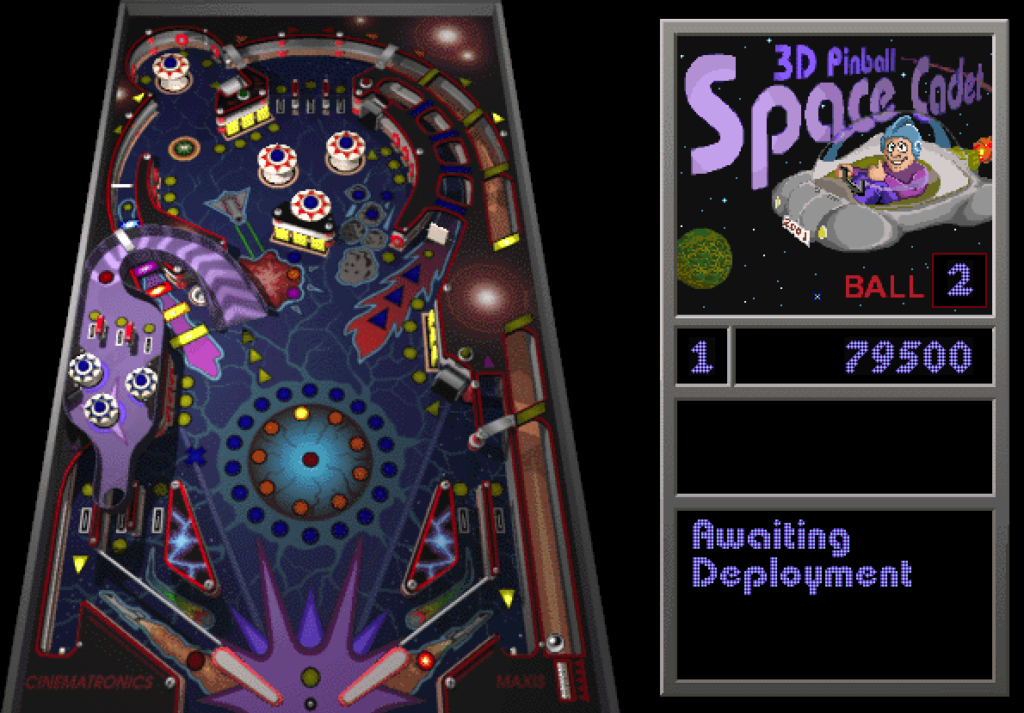
I hacked 3D Pinball to always win.
I always enjoyed finding glitches in games, using Cheat Engine to take things a step further, and eventually: learning to decompile executables and statically analyze assembly code.
If you’ve ever played Microsoft’s 3D Pinball Space Cadet, you might be familiar with the “Redeploy Ball” mechanic: if you score an embarrassingly low number of points on a particular deployment, then rather than losing the life on dropping the ball, you get to redeploy that same ball instead, keeping your points as well as your lives.
Using a combination of static analysis through Ghidra and IDA, and dynamic analysis through Cheat Engine, I tracked down the exact byte for the jump command that determines whether you get to replay the ball, or whether you lose a life. I patched that one byte in order to make a version of the game that you could never lose.
The Benefits:
- I learned a lot about static analysis
- I can get a really high score in pinball
The Not-So-Benefits:
- Games that you can’t lose cease to be games
- You can’t save your score without losing

I made a personal voice-based GPT Chat bot.
ChatGPT is extremely cool and incredibly useful. You know what makes it a bit less cool in my opinion? Having to open the app on my phone, or navigate to the website in order to make use of its functionality. So, I made it easier.
Using the help of ChatGPT and the OpenAI documentation, I created a Python script that allows me to:
- Convert spoken words into a request to the ChatGPT API
- Convert the API’s response into a spoken voice
- Play back that response via my default audio output device
Now, instead of having to visit the site, I can just hit a hotkey on my keyboard at any time and directly interface with ChatGPT just using my voice!
